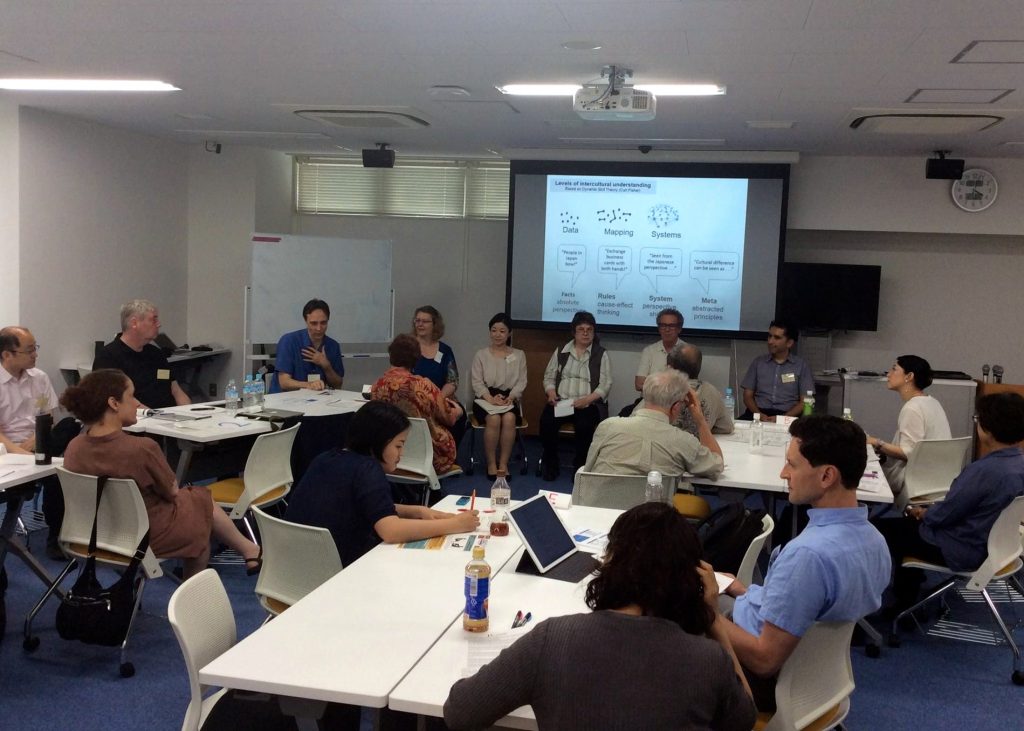JII is supporting an ongoing Japanese Ministry of Education (MEXT) funded research projects related to the psychology of language and culture learning. See description below.
Researchers: Robinson Fritz, Joseph Shaules, Sumiko Miyafusa, Gabriela Schmidt,
Research titles: Linguaculture Resistance and its Effects on Learner Motivation (MEXT Project #17K02982) Profiling mixed motivation: An inquiry into learner resistance and engagement in foreign language learning (MEXT Project #22K00714). These projects are in their final year and we are currently applying for another grant to continue it. Title of grant proposal: Engagement, Resistance and Mixed States: Uncovering Complex Motivational Patterns of EFL Learners in Japan and Internationally.
Are you interested in understanding your university students’ motivation to learn foreign languages? We are members of a three-year project funded by the Ministry of Education, Culture, Sports, Science and Technology (MEXT). Its goal is to understand patterns of resistance towards language learning among Japanese students*. In order to do that, we have created the Linguaculture Motivation Profiler (LMP), a 45-item quantitative questionnaire. The LMP is being made available for educators to administer it in their own teaching contexts. It takes between 7 to 10 minutes for students to complete (English and Japanese versions are available). We are looking for Japan based educators to participate in the project by collecting data in their teaching context. Your students can take the survey online and you will be able to view the results for your class. Participation is free and personal data is not collected.
Theoretical background – The project draws on intercultural adjustment theory and assumes that learner motivation is not binary (motivated/demotivated), but psychologically complex. This project conceptualizes motivation along the dual axes of engagement (approach motivation) and resistance (avoidance motivation). From this view, motivation is dynamic as learners can experience engagement and resistance at the same time. These mixed-states are witnessed in learners who say they want to learn (engagement), but do not want to practice or study (resistance). Measuring and understanding these mixed-states and conflicted feelings is an important goal of this research. In addition, this project views foreign language learning as a disruptive process which requires an individual to internalize foreign linguistic and cultural patterns. However, adapting to these demands for change causes a natural avoidance response— hence resistance. Resistance to foreign language learning is not seen as learning failure, but a normal part of the learning process.
Implications of this project – This project seeks to identify common motivational patterns, and this research intends to contribute by helping educators and learners in Japan gain insight into learner demotivation, and encourage learners’ self-efficacy. The LMP is not intended to quantify learner motivation in an absolute sense, as it is assumed that motivation is dynamic and changes due to many factors. Instead, the main uses of the LMP for teachers are 1) a diagnostic assessment – identify learners’ needs to appropriately inform curricula, syllabi or pedagogy in a teacher’s context 2) a kind of formative assessment – identify factors causing students to engage or resist at any given time 3) promote learner reflexivity – encourage students to reflect on the factors that cause them to engage or resist 4) the basis for action research.
If you are interested in learning more about using the LMP in your teaching context, please contact Robinson Fritz at jii.kaken (at) gmail.com
*For scholarly articles about this project members see here (in English) or here (in Japanese).

